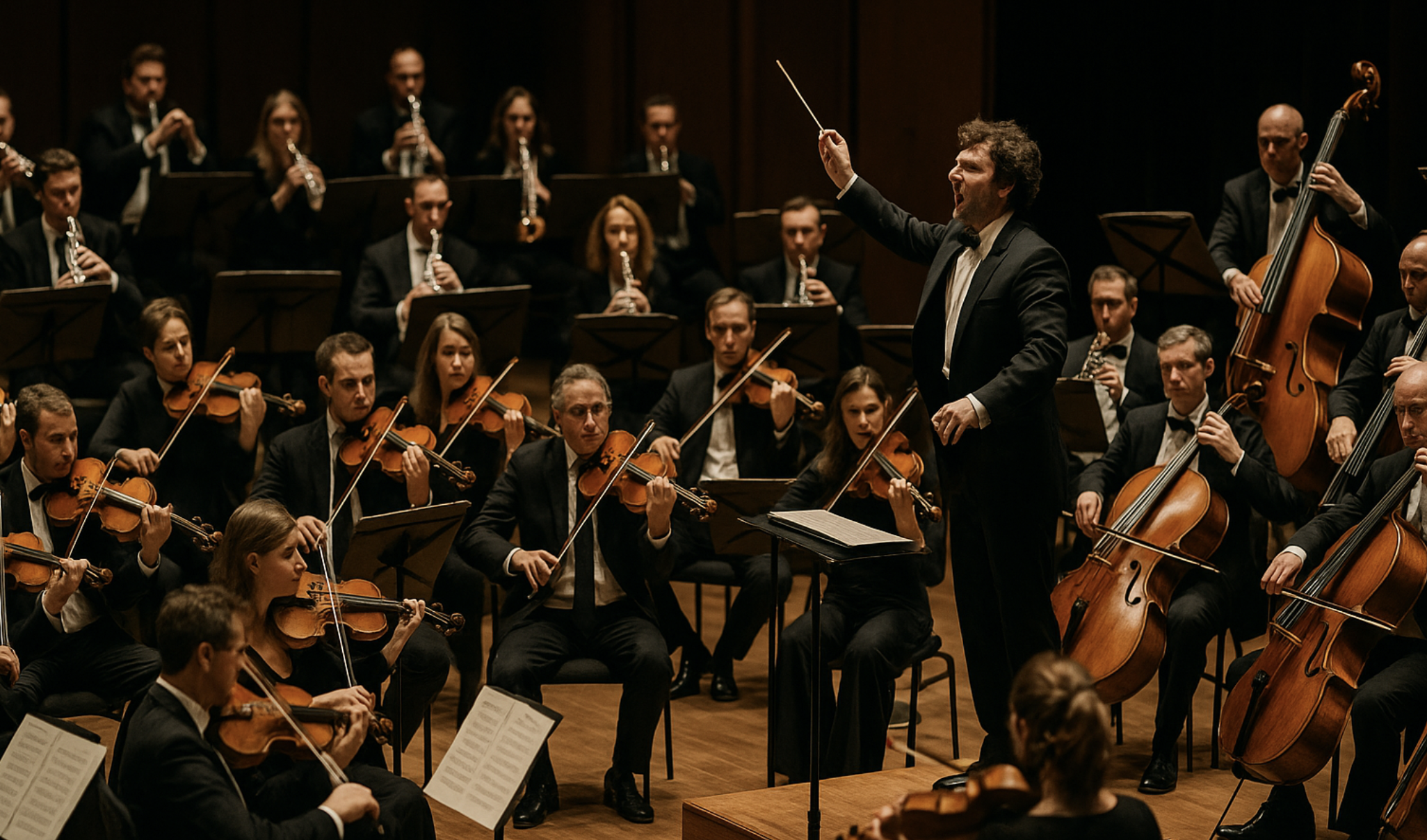Why Memories Tied to Sound Feel So Vivid
You’re walking through a grocery store, halfway lost in thought (did I need any other fruit?), when a song floats through the overhead speakers. It’s not loud, and it’s not even a favorite of yours, but suddenly, you’re not in aisle six anymore.
You’re back in your childhood bedroom, or your college dorm, or the front seat of a long-lost car on a rainy afternoon. Your heart skips a beat and your throat tightens.
For a fleeting second, the past isn’t the past at all.
It’s here, alive, breathing in your chest, and playing through your ears.
That’s the power of sound-linked memory. Somehow, memories tied to sound aren’t just recalled…they’re relived, and vividly. Emotionally and viscerally a few notes can do what entire conversations can’t, unlock a moment so completely that you feel time fold inward on itself.
If you’ve been here before you know where this is going…but why?
Why does hearing a song from 2008 feel more emotionally charged than seeing an old photo does? Why does the sound of a certain laugh, bell, or ringtone make your stomach flip, years later? Turns out the answer is neuroscience colliding with poetry, and the strange power of sound…the keeper of our most vivid memories.
How Auditory Memory Works
First, a little science, if you will.
When you hear something (anything), sound waves are processed by something the interwebs calls the auditory cortex, located in the temporal lobe of your brain. That’s the basic pathway, anyway, but sound doesn’t stop there.
Auditory input is closely tied to the amygdala (the brain’s emotion center) and the hippocampus (where memories are formed and retrieved). That means that when you hear a song, or a voice, or a sound that meant something to you, it doesn’t just get processed intellectually, it also triggers emotional and spatial recall.
Some studies even show that sound could activate more of the brain than visual stimuli. That’s why music therapy is often used for dementia patients…songs can reach memories that language and images can’t.
Sound doesn’t just accompany memories, it tags them. Think of every life chapter as having its own unofficial soundtrack where your first heartbreak was scored by acoustic guitar, or a road trip summer sealed itself with 90s pop, or something sad like a loss held in the hush of piano or the echo of silence.
Unlike smell (which accesses memory through the limbic system), sound stretches across emotion and logic, engaging language, rhythm, and the body all at once. That’s why music can make you cry, even if you’re not really sure why. It doesn’t have to speak to your mind…it speaks directly to your history.
Everyday Sounds Leave Traces
Sometimes the most powerful auditory memories aren’t tied to songs at all.
The ding of a text tone from someone who used to call, the crackle of a fireplace that only existed in your grandparents’ house, the thrum of an old refrigerator, or the creak of a porch swing, or the click of a car door that hasn’t shut in years. All of these aren’t just sounds. They’re more like sonic imprints…tiny time machines scattered across the everyday world.
Unlike visual triggers, sounds don’t need your focus, they sneak in sideways, catching you off guard, and yanking you out of the present before you can build a defense.
Sound is temporal, meaning it unfolds over time. That gives it a unique access point to memories, which are stored not as still images, but more like narratives. When you hear a song, it doesn’t just show you just one moment. It moves…melody, verse, chorus, your memory rides that structure like a wave, calling up not just what happened, but how it felt across time.
A photograph shows you a face, but a song brings back the entire night.
Sound and Trauma
For those of you out there like me who live with PTSD or anxiety, sound can be both a gift and a ghost. A slamming door can trigger panic (Champagne corks, balloons popping, and breaking glass is the worst for me), while a familiar voice on a recording can bring sudden grief, or a siren can rewind the clock to something you’ve tried your hardest to forget.
That’s because sound bypasses our logic and reasoning abilities. It’s not filtered through language or reason, it just goes straight to your body and does not collect $200 when it passes go. (Sorry, Monopoly anyony?)
For trauma survivors, this means even healing takes a sonic shape. Soothing voices, wind through trees, low, slow classical music all play a part. I listen to whale noises and Tibetan bowl sounds most days which don’t have lyrics that could startle me depending on what they’re talking about (I never realized how violent most of our music is).
Sound can ground you…or unravel you. Which is why being aware of your auditory environment is so important to mental health.
Nostalgia through sound is embodied, it’s not just “I remember this.” It’s “I feel like I’m inside this again.”
That’s because sound triggers somatic recall (muscle memory, posture, breath), some contextual associations (weather, scent, emotion), as well as emotional mimicry (your brain recreates the hormonal state you were in). So when that high school song plays, your shoulders tense the same way and your breath catches. You feel, briefly, like you did then.
That’s not just your imagination, that’s neural reactivation.
And while it can be overwhelming, it can also be a powerful tool for writing, healing, or reconnecting with parts of yourself that felt forgotten.
Why Some Sounds Stick More Than Others
Not all sound memories hit equally.
The ones that stick tend to have high emotional charge (joy, grief, longing, fear), repetition (played during a formative phase of life), or some association with a person or place.
Songs tied to first love, first loss, or major life shifts act like bookmarks in your brain. The more emotion + repetition, the more likely a sound gets coded as important. Even voices linger…ever tried to remember someone’s face and heard their laugh first?
Sound just gets there faster.
You can actually use auditory cues intentionally to stir memory or emotion if you really want to. Create a soundtrack for a journal entry…what were you listening to when you wrote it? I’ve actually read some books (romantic fantasy, you know me), where the author lists a song per chapter to listen to while you read.
You could also make a grief playlist that holds the music you shared with someone you lost or use white noise or ambient sound to revisit a headspace (waves for beach memories, city sounds for travel recollections). Try binaural beats to mimic brainwave states tied to creativity or calm (I use these almost every day!).
Memory is stored all over the brain, but sound has a way of sweeping across every part of it.
In moments of chaos or disconnection, sound can be a lifeline. It’s helped me through more than one PTSD episode, and I’m sure it’ll help again in the future.
A song can regulate your breath while a mantra can override intrusive thoughts. The sound of rain could settle an anxious heart if storms bring you that sense of calm. And in reverse…hearing the wrong sound at the wrong time can knock your balance off entirely and sweep the rug out from under you.
So we do our best to curate our sound experience. We wear noise-canceling headphones, choose rain playlists, and seek silence when the world is too loud. Because we know deep down that sound affects memory, mood, and meaning.
It always has.
In an age of overstimulation and doom-scrolling, it’s easy to forget that our most powerful moments aren’t just visual, they’re auditory.
That first cry, that lullaby, that voicemail you saved but can’t bring yourself to listen to.
Sound roots us, lifts us, breaks us, and mends us all at the same time. We are, in many ways, built like symphonies…layered and full of motifs that resurface in unexpected ways. To understand our memories, sometimes we have to listen to what echoes for us.

